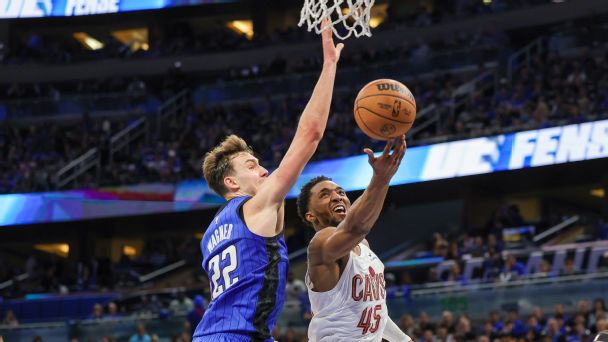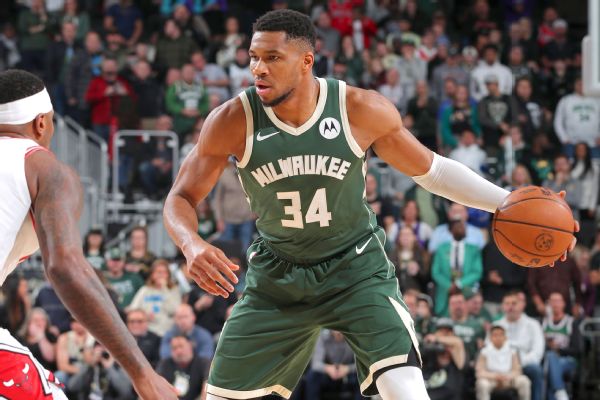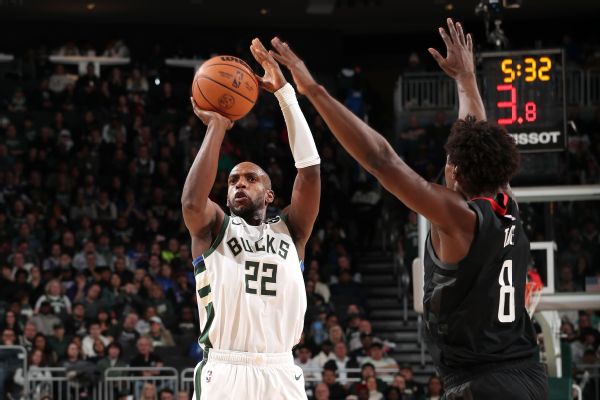By virtue of playing the only Game 7 of the first round, the Cleveland Cavaliers and Orlando Magic will take center stage Sunday (1 p.m. ET, ABC).
Although neither team will be favored to beat the top-seeded Boston Celtics in the Eastern Conference semifinals, winning this series would be immensely meaningful for two teams that have spent much of their recent past in the lottery, including both making a top-five pick in 2021.
Orlando hasn’t won a playoff series since 2010, and while Cleveland is just six years removed from the last of four consecutive trips to the NBA Finals, the franchise’s most recent series win that didn’t include LeBron James came in 1993.
After the two teams traded double-digit home victories in the first four games of the series, the past two finishes have been thrilling. Game 5 saw the Cavaliers survive at home when Evan Mobley blocked Franz Wagner’s game-tying attempt in the final seconds. The Magic followed by coming back from a five-point deficit entering the fourth quarter Friday to tie the series and force Game 7 despite a 50-point performance from All-Star Donovan Mitchell.
What could decide the outcome of Sunday’s game and who advances? Let’s break down the key storylines and trends, including the health of Cleveland center Jarrett Allen.
Allen ruled out for Game 7
The Cavaliers have played the past two games without Allen, who started a team-high 77 games during the regular season and averaged a career-high 16.5 points per game — up from his 2021-22 All-Star campaign. Allen’s absence has helped Cleveland open the floor offensively, including the team’s best performance on a per-possession basis in the Game 5 win, but he has been missed defensively.
Without Allen patrolling the paint alongside Mobley, the Cavaliers’ interior defense broke down in the fourth quarter during Game 6. Orlando scored 12 points on 6-for-8 shooting in the paint in the fourth quarter and grabbed more offensive rebounds (5) than Cleveland had defensive boards (4). A pair of second chances in the final two minutes helped the Magic maintain their lead and close out the must-win game.
Cavaliers coach J.B. Bickerstaff is simply running out of reliable options, as well. After starting wing Isaac Okoro in Allen’s place during Game 5, Bickerstaff went with bigger veteran Marcus Morris Sr. for Game 6. Morris, who had 12 points off the bench in Game 5, finished with two in 27 minutes on 1-for-7 shooting Friday.
Only three Cleveland players scored more than four points as its offense relied heavily on Mitchell, who joined Michael Jordan in Game 6 of the 1998 NBA Finals as the only players in NBA history to score more than half of their team’s points (50 of Cleveland’s 96) in an elimination game, according to ESPN Stats & Information research. Mitchell scored all 18 Cleveland points during the fourth quarter as Orlando rallied to win.
Alas, Allen was ruled out for Game 7 not long before tipoff. His return would have helped, if only for limited minutes when Mobley is off the court to give the Cavaliers a more potent option than veteran Tristan Thompson.
Meanwhile, the Magic played Game 6 without starting guard Gary Harris because of a right hamstring strain. His absence, along with Cleveland’s improved floor spacing, helped Cavaliers guards Mitchell and Darius Garland get going. They combined for 52 points in the paint Friday, double their total in their previous best game in the series (Game 5).
Which Franz Wagner will Orlando get?
More so than the Magic’s leading scorer, All-Star Paolo Banchero, Wagner has been a bellwether in this series. Wagner has averaged a team-high 25.3 PPG in Orlando’s three wins on 58% shooting to go along with 7.7 RPG and 4.7 APG with just one total turnover in the three games. The Magic are plus-65 with Wagner on the court in their three wins.
In Orlando’s three losses, those averages drop to 16.7 PPG on 35% shooting with 2.7 turnovers per game. The Magic have been outscored by 22 with Wagner on the court in losses.
Above and beyond the shot-making element, Wagner has simply gotten better shots at home. Second Spectrum’s quantified shot probability (qSP) estimates the expected effective field goal percentage (eFG%) of shots based on their location, type, distance to nearby defenders and player ability.
Wagner’s 46.5% qSP in road games ranks ahead of only two players with more than 40 shot attempts in the playoffs, Banchero and Brandon Ingram of the New Orleans Pelicans. In home games, Wagner’s qSP has gone all the way up to 50.4% by virtue of getting to the rim more frequently. At home, 38% of Wagner’s shots have been either layups or dunks according to NBA Advanced Stats, as compared to 30% on the road.
If Cleveland can contain Wagner, it leaves Orlando heavily dependent on Banchero to create offense.
Possible X factors
Besides Wagner, Cole Anthony has also played far better in Orlando’s wins, averaging 7.3 PPG at home and scoring just six points total in the team’s three road losses. Anthony stepped into Harris’ spot in the Magic’s crunch-time lineup in Game 6, providing a key late putback.
The Cavaliers could use a bounceback performance from key reserve Caris LeVert, whose 14.0 PPG ranked fifth on the team during the regular season. LeVert has just 10 points total over the past three games and saw no action after halftime Friday, finishing with a season-low seven minutes. LeVert hasn’t been able to make a shot in this series (36% on 2s, 27% on 3s) but still provides the best combination of size and shot creation off the Cleveland bench.
Starting small forward Max Strus has also been quiet in this series, reaching his season average of 12.2 points just once in the Cavaliers’ Game 6 win. Cleveland’s offense is far more dangerous when Strus can make Orlando pay for packing the paint too tightly against Garland and Mitchell.
Importance of home court
This is the 20th series since the NBA adopted its current playoff format in 1984 to see the home team win each of the first six games. In a remarkable twist, each of the past three times it happened (the 2018 Eastern Conference finals between Boston and the Cavaliers, the 2021 Brooklyn-Milwaukee series and Dallas-Phoenix in 2022), the road team has gone on to win Game 7.
Overall, since 1984, home teams are 14-5 (.737) in Game 7 in series without a road victory to that point, as compared to 71-24 (.747) in all Game 7s over that span. There’s nothing specific about the way this series has played out that indicates Cleveland will derive an extra benefit from playing at home above and beyond the usual advantage in Game 7s.


